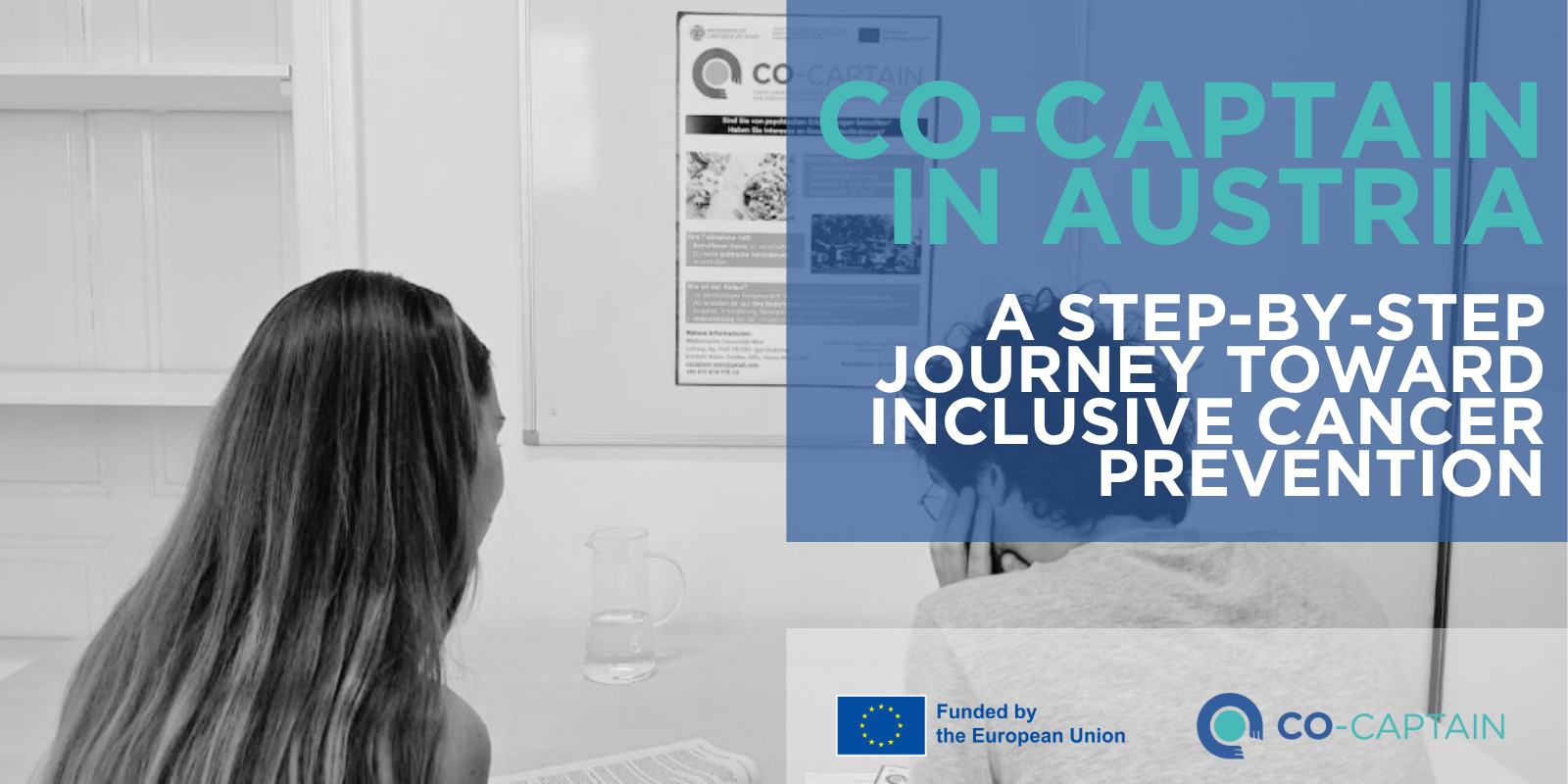The Austrian pilot of the CO-CAPTAIN project, coordinated by the Medical University of Vienna, continues to make steady progress toward its goal: bringing primary cancer prevention closer to people experiencing mental ill-health through a person-centred navigation model.
One of Europe’s oldest and most prestigious medical training and research institutions, the Medical University of Vienna leads the Austrian implementation by combining cutting-edge academic expertise with deep engagement in the community. The pilot is being implemented across five sites, including Clinic Hietzing, LogInsLeben, Medical University of Vienna, Psychosocial Services in Vienna (PSD), Regenbogenhaus (Rainbow House) — all chosen for their strong local ties and experience in supporting people experiencing mental ill-health.
To date, the team has reached out to 507 individuals, successfully recruiting 86 participants into the programme. Of these, 43 have reached the first follow-up phase (T1), 7 have completed T2, and none have yet reached T3. The drop-out rate stands at 17% — relatively moderate considering the structural and personal challenges faced by this population.
The recruitment strategy has been multifaceted. The team has engaged directly with local clinics and NGOs, distributed posters and leaflets, carried out a social media campaign, and even provided updated project information through monthly program sheets at some sites. These outreach efforts have ensured consistent visibility and helped maintain participant engagement.
At the heart of the pilot are the three Patient Navigators — trained professionals from the Medical University of Vienna who play a key role in establishing trust and supporting participants through their individual journeys. Their tasks range from maintaining regular personal contact to identifying tailored cancer prevention opportunities and gathering low-threshold resources for participants. The navigators also bridge structural gaps and adjust to each person’s unique rhythm and readiness for change.
The intervention focuses on five key areas of cancer prevention: nutrition, physical activity, smoking cessation, vaccination, and risky health behaviours. During the first phase (T0–T1), the emphasis on nutrition and exercise was stronger. As the pilot progressed to the second phase (T1–T2), activities shifted more toward physical activity and smoking cessation — a reflection of the project’s capacity to adapt in real time to participant needs.
One of the most important lessons emerging from Austria has been the need for flexibility. Rather than following a rigid protocol, navigators respond with empathy and adaptability — showing that meaningful prevention starts by meeting people at eye level where they are.
Austria is just one of four pilot countries involved in CO-CAPTAIN, but its progress reaffirms a central message of the project: when people feel heard and supported, prevention becomes not only possible, but empowering.







